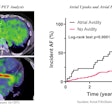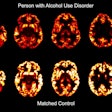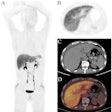
The U.S. Centers for Medicare and Medicaid Services (CMS) has issued a final national coverage determination (NCD) that limits coverage for Alzheimer's monoclonal antibody drugs like aducanumab only to people enrolled in qualifying clinical trials.
First proposed by CMS in January, the NCD applies to approved monoclonal antibodies that target beta-amyloid plaque for the treatment of Alzheimer's disease. Currently, aducanumab (Aduhelm, Biogen) is the only such monoclonal antibody approved by the U.S. Food and Drug Administration (FDA).
Under the final policy, Medicare will cover monoclonal antibodies that target amyloid (or plaque) for the treatment of Alzheimer's disease that receive traditional approval from the FDA under coverage with evidence development (CED). This requires that payment will only be made for these drugs if patients are enrolled in CMS-approved clinical studies, such as data collection through routine clinical practice or data registries.
The CMS said it would support the FDA by paying for drugs and related services, such as PET scans if required by trial protocol, for people covered by Medicare who are participating in the trials. The agency further said that the policy specifically applies to people who have a clinical diagnosis of mild cognitive impairment due to Alzheimer's disease or mild dementia and who also have a confirmed presence of plaque on the brain.
The CMS policy has drawn fire from medical technology groups, which believe that the policy would restrict and delay access of Medicare beneficiaries to therapeutic treatment options for Alzheimer's disease.




















